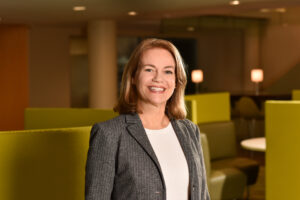ASF: What have you been up to since you left us in 2022?
Malik Seals: After graduating in 2022, I moved to Atlanta, GA, and began a master’s program in bioethics. During this time, I also applied to medical schools and married my best friend and partner of 10 years in September. I also recently completed my M.A. in bioethics, drove 41 hours to Portland, OR, and began medical school on August 7th while serving as a Fulbright Alumni Ambassador with the U.S. State Department. So, things have been busy but exciting.
ASF: Congratulations on the move the new program, and your marriage! Like many of us, you are starting school again. At UAB, you received a masters in Biomedical Sciences. You just finished up your MA in bioethics at Emory. You are now in a MD/Ph.D in Oregon. Can you tell us a little about your educational arc and what desires you have for how you want all of these degrees to work together?
MS: Admittedly, reading this I can quickly see how seemingly disconnected my path has been. My educational journey has been intentionally interdisciplinary. I knew I wanted to become a physician-scientist and have research occupy much of my career. However, early into my academic career, I recognized the inherent homogeny between science and medicine, and having a solid foundational understanding of science would inevitably improve my skills as a physician; similarly, being able to contextualize my science and tease out clinically relevant details to explore in the lab would more readily allow me to conduct translational science (i.e., taking discoveries at the basic science level out of the laboratory and applying them to clinical contexts).
My interest in bioethics stemmed from the COVID-19 pandemic. As we began understanding the science and implementing vaccine rollouts, I saw that the individuals directly involved in the science or interacting with patients were not actively engaged in the policy or implementation. Also, I saw several underlying social and ethical issues needing to be adequately addressed (e.g., lack of diversity in early clinical trials). This inspired me to study bioethics with a focus on public ethics and develop the skills necessary to apply bioethical concepts to public health policy to promote equity and accountability as we develop new therapeutics and medical technologies.
At the end of my training, my training in medicine, science, and the humanities will allow me to critically analyze the science, the clinical applicability, and the ethical implications of the application and distribution of rapidly emerging medical and scientific technology.
ASF: As noted above, you have a lot of schooling! Does this time feel different?
MS: This time feels different mainly because of the length of training and being acutely aware that the amount of information is both dense and broad. In contrast, my previous experience with science and research is that the information I needed was often more esoteric and narrower in scope. But I genuinely enjoy the applicability of the material I am learning to human biology and disease.
ASF: With all of these academic and professional experiences, what role did ASF play in your development and preparation?
ASF showed me that I had a myopic view of medicine and the vital role of social and emotional well-being in an individual’s life. During my project, I worked with a demographic with a higher predisposition to loneliness and social isolation, exacerbated by the pandemic. Through these interactions, I saw the power of community and the importance of friendship and companionship; these relationships are inextricably linked to physical and psychological health, yet we often place them on a lower rung of the medical hierarchy.
Also, as a physician, I must navigate cultural, class, and communication barriers to deliver comprehensive and culturally competent care with humility and respect. The fellowship taught me how to do this by identifying commonalities with my participants at the base level. I also gained a greater appreciation of contextualizing a person’s situation and recognizing my limits of being able to perceive my personal biases. Now I enter conversations and settings a lot more open to combat any preconceived notions I may have.
ASF: What advice do you have for our potential or current group of Fellows?
MS: Start from the bottom up. By this, I mean allow your community of interest to dictate your project, not vice versa. As a fellow, you are trying to address an unmet need in the community; therefore, you should speak with your intended community to see what services they lack or could improve. I made the mistake of creating a project I thought could be readily adapted to my participants without asking them for input. I quickly realized that you need buy-in from your participants for a successful project, and it is much easier and more efficient to garner this from the beginning.
ASF: Anything in particular you are looking forward to as a new resident of the Pacific Northwest?
MS: I love cool weather, and the PNW, especially Oregon, is supposedly beautiful during the fall. I also enjoy living in a walkable city with virtually a coffee shop on every corner. Also, Portland has easy access to gorgeous hiking trails and the beach, so I will be exploring both in the coming weeks.



